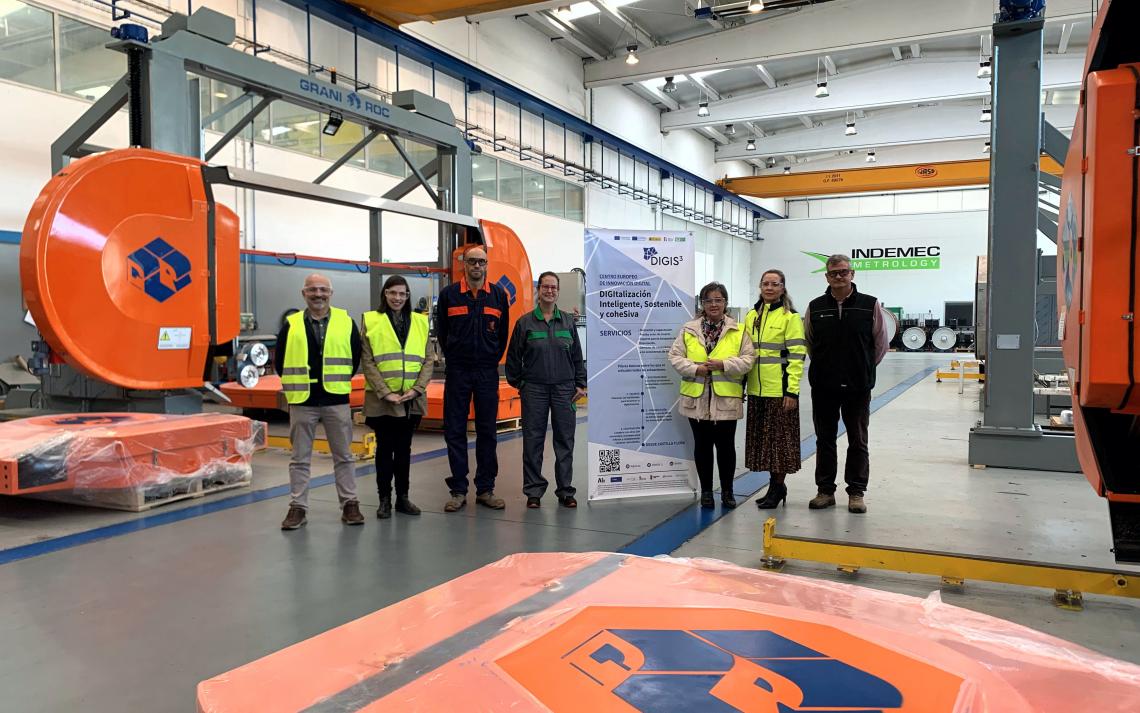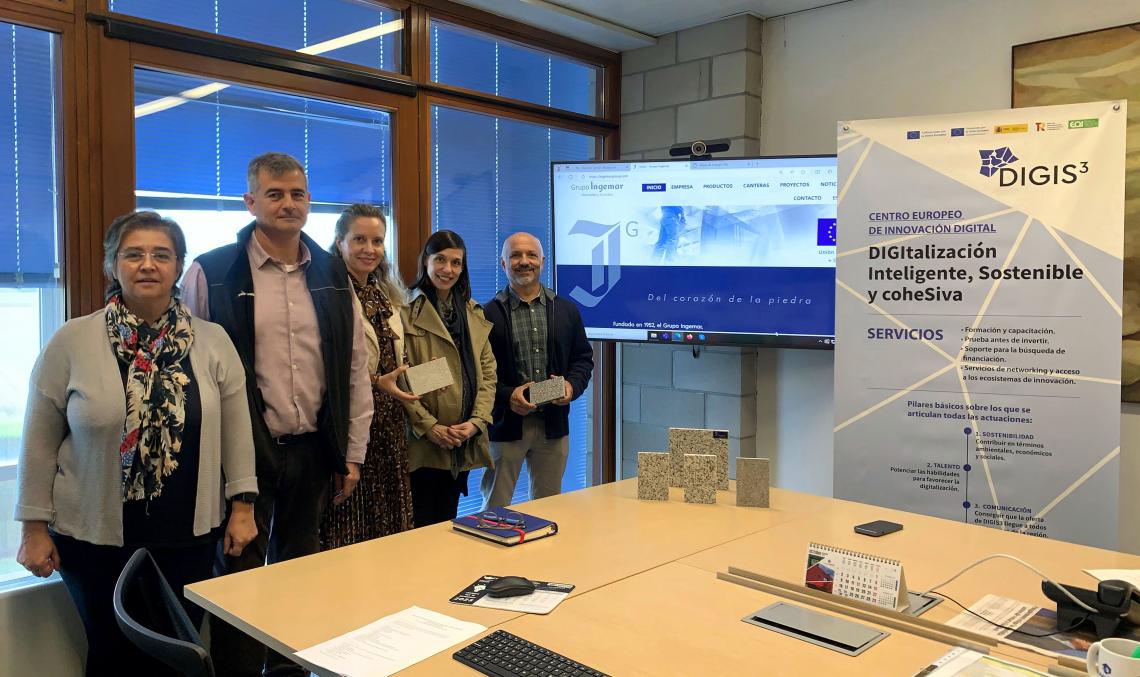In the framework of the DIGIS3 Intelligent, Sustainable and Cohesive Digital Transformation project, researchers and geologists from the University of León (ULE) and the Q-GEO Research Group (Environmental Geology, Quaternary and Geodiversity) held a strategic meeting last October with the Ingemar business group. The main objective of this meeting was to define the initial problems for the provision of the DIGIS3 service, as well as to provide representative samples of various types of ornamental rock for their characterisation in the facilities of the External Geodynamics Area of the ULE.

The Q-GEO Research Group of the ULE plays a crucial role in offering support and training to companies and technology centres in remote sensing and image spectroscopy applications focused on geological resources. For its part, the Ingemar Group is dedicated to the research, extraction, processing and marketing of ornamental rock from its own quarries, both nationally and internationally. This company, founded in 1952, currently has a large granite, marble and limestone sawing factory located in Guitiriz (Lugo), in a strategic location due to its proximity to the main granite block quarrying areas.
In the context of the DIGIS3 consortium, the Q-GEO Group—coordinated by Professor Eduardo García Meléndez— provides companies involved in the exploitation and/or extraction of rocks with technologies based on remote sensing and VNIR-SWIR laboratory reflectance spectroscopy. These technologies provide useful information for the efficient development of their tasks in the digital transformation processes. The addressed technological challenges include proximity mapping of the spatial distribution of mineral concentrations in any rock type. This methodology allows to cover ranges from metric to micrometric, from space-based observation to direct sample analysis.

The Q-GEO Research Group of the University of León is among the 14 research groups of the ULE that are part of the DIGIS3 HUB. This consortium, made up of six entities from Castilla y León including the ULE, IoT-DIH (AIR Institute), DIHBU, DIH-LEAF, SCAYLE and the Institute for Business Competitiveness of Castilla y León (ICE), has the main objective of promoting the Intelligent, Sustainable and Cohesive Digital Transformation of small and medium-sized enterprises, as well as public administrations in the community over the next three years.
The meeting between research and the business sector underlines DIGIS3's commitment to foster innovation and sustainability in the geological industry and to promote synergies that contribute to technological and economic development in the region.